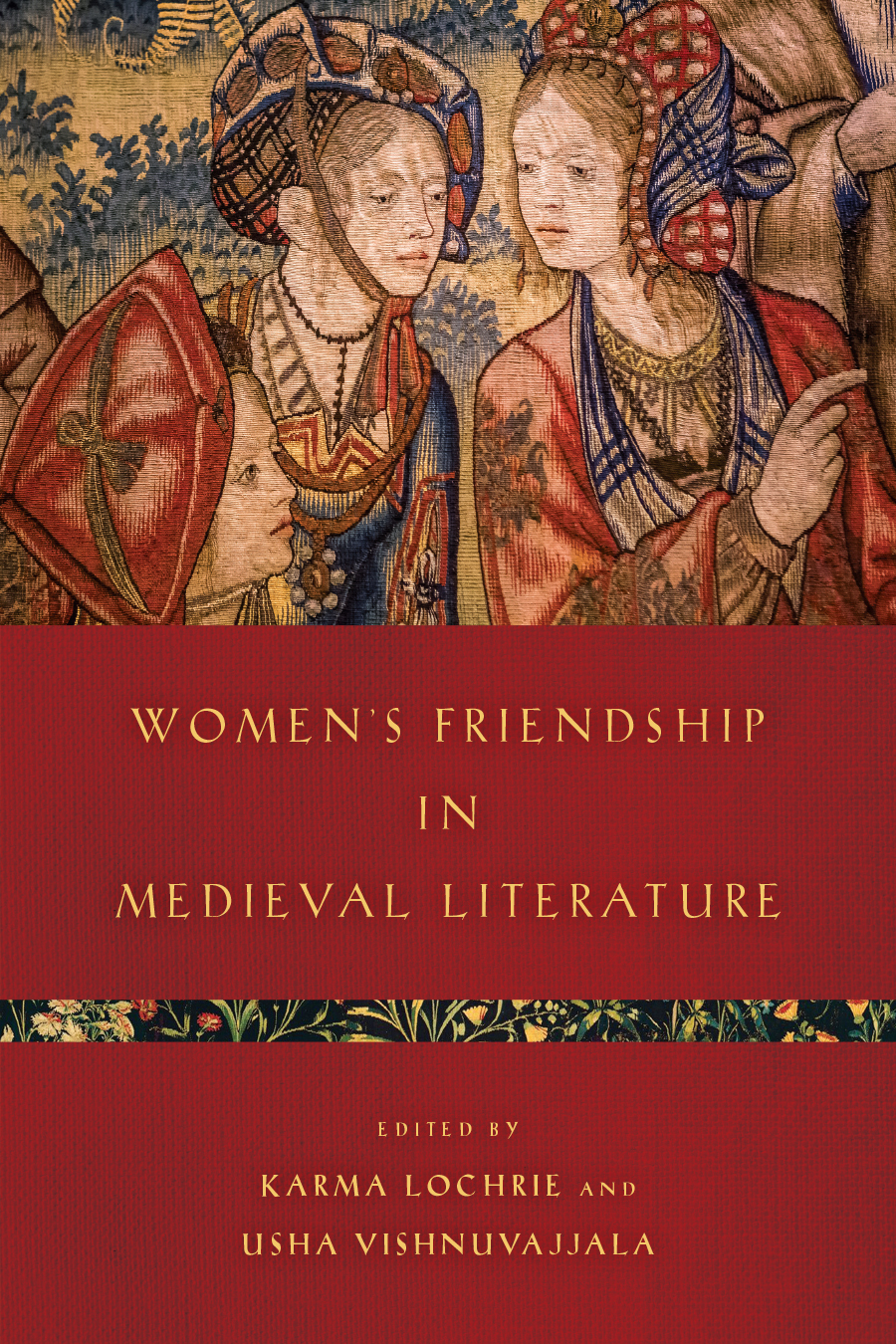“This wonderful unification of female academic voices, spearheaded by Karma Lochrie and Usha Vishnuvajjala, is profound, intriguing and often emotive. … a beautiful ode to female friendship, both modern and medieval. Lochrie and Vishnuvajjala have created the foundations for a whole new field of research, while also aiming to shape our understanding of ourselves and our histories in a post-pandemic world.” —Emma Bairstow, Forum for Modern Language Studies
“Women’s Friendship in Medieval Literature is one of those rare collections in which each article not only stands on its own as a provocative piece of scholarship but also contributes to an integrated whole. The contributors, that is, have become collaborators in a shared argument, so that the volume models the social and textual work of women’s friendship that it explores.” —L.M.C. Weston, Modern Philology
“Women’s Friendship in Medieval Literature offers the reader a range of innovative ways for identifying and analysing textual evidence and representations of comradeship and camaraderie between women in the Middle Ages. These readings often involve being open to finding links between the past and the present and to reading the absences and gaps in the narratives.” —Diane Watt, Modern Language Review
“The significance of Women’s Friendship in Medieval Literature cannot be overstated: it gathers some of the freshest voices in medieval literary studies to present some of the most transformative and inspiring work on women and gender to date.” —Holly A. Crocker, author of The Matter of Virtue: Women’s Ethical Action from Chaucer to Shakespeare
“Lochrie and Vishnuvajjala have put together an exciting collection of essays about female friendship. Readers looking for feminist interventions in medieval studies will find Women’s Friendship engaging and thought provoking.” —Rebecca Krug, author of Margery Kempe and the Lonely Reader
In Women’s Friendship in Medieval Literature, Karma Lochrie and Usha Vishnuvajjala bring together established scholars and new voices to illuminate a previously understudied but consequential element of life in the Middle Ages. Contributors focus on representations of women’s friendships in medieval European literature and their afterlives both to historicize them and draw out the finer nuances of the multitude of forms, affects, values, and ethics that emerge within those friendships. This volume examines works by Chaucer, Gower, Malory, Marie de France, female saints, and late-Middle Scots poets alongside lesser-known late medieval lyrics and Middle English romances to chart women’s friendships and their many and sometimes conflicting affinities with the cultural categories of gender, religion, politics, and sexuality. In addition to exploring the parameters of female friendship across a range of texts and historical contexts, contributors evaluate the political, religious, and civic structures negotiated in public and private and engage with the long history of theory and philosophy on friendship. The result is a theoretical and historical rubric for the future study of women’s friendships in medieval texts and beyond.
Contributors:
Penelope Anderson, Andrea Boffa, Jennifer N. Brown, Christine Chism, Melissa Ridley Elmes, Laurie Finke, Carissa M. Harris, Lydia Yaitsky Kertz, Clare A. Lees, Karma Lochrie, Gillian R. Overing, Alexandra Verini, Usha Vishnuvajjala, Stella Wang

 The College of Arts
The College of Arts